| |
|
|
|
|
|
|
|
|
|
|
| |
| |
 |
|
| |
田润德 编译文/图 2020-05-18
20:36 |
|
| |
|
|
|
|
| |
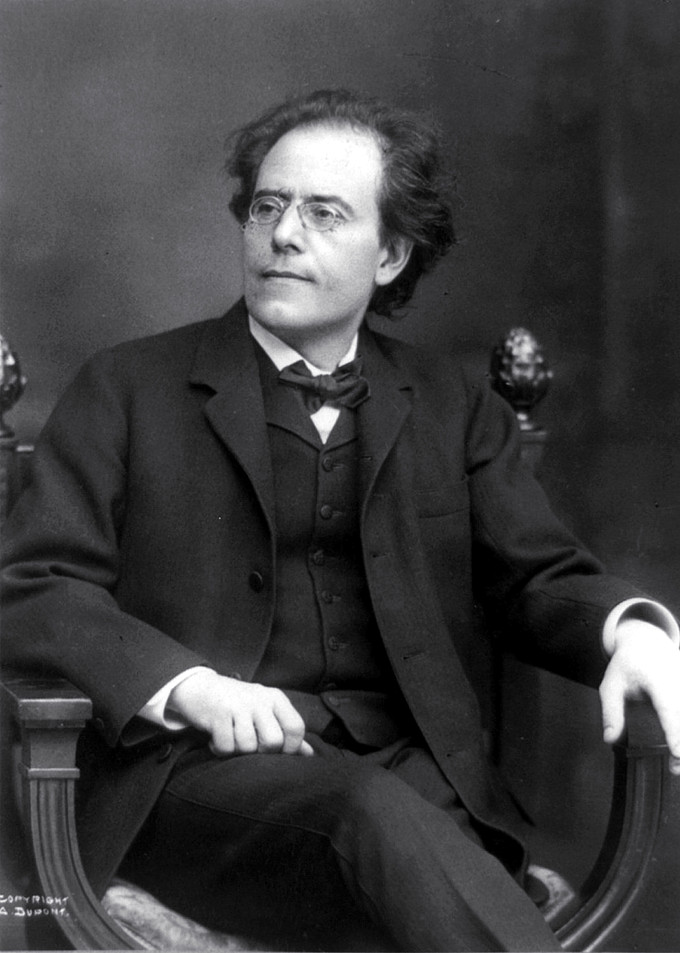 |
|
|
|
| |
古斯塔夫·马勒 (Gustav
Mahler,1860—1911) |
|
|
|
| |
|
|
|
|
| |
马勒 第五交响曲 2010年
|
|
|
|
| |
Mahler symphony no. 5, 2010
|
|
|
|
| |
马勒第五交响曲是古斯塔夫·马勒的中期交响曲中最有代表性的一首。在第四交响曲歌咏天国之后,马勒以第五交响曲第一乐章的葬礼进行曲开头,表象了贝多芬命运般的主题。第二乐章紧接前一乐章的悲观,指示为暴风雨般的,在乐队发出极端忧郁后,主题进入欢快的大调,表象乐曲气氛改变,由此结尾引出第三乐章。第四乐章是马勒献给妻子的音乐情书,甚为感人。第五乐章在爱情的深沉后由圆号发起,乐曲进入D大调,表现了马勒敢于与命运作斗争的气概。 |
|
|
|
| |
|
|
|
|
| |
音乐历史上的今天
1911年5月18日,晚上11点05分,在一场暴风雨中,古斯塔夫·马勒在维也纳的勒夫疗养院咽下了最后一口气。他50岁,单独一人,妻子被送出了他的房间。“我永远都不能忘记他垂死的那几个小时以及当死亡临近时他脸上的伟大神情。他为永恒价值所作的奋斗、他从平凡琐事提炼出的崇高、他对真理毫不动摇的忠诚,都是圣洁生活的典范”(阿尔玛·马勒语)
在波西米亚的卡里什特,1860年7月7日这一天,又一颗让世界为之瞩目的乐坛明星诞生了,他就是奥地利著名作曲家、指挥家——古斯塔夫·马勒(Gustav
Mahler,1860—1911)。
马勒在他还是孩童的时候就已显露出其卓越的艺术才华:6岁时参加钢琴比赛;
8岁时已能为别的儿童授课;15岁离开文科中学到维也纳音乐学院学习3年,因成绩优异几次获得奖赏。
1911年,当他第四次休假回国旅行期间,因心脏病发作,5月18日在维也纳逝世,享年51岁。
19岁起马勒开始指挥和创作活动,曾先后在布拉格、莱比锡、布达佩斯、汉堡和维也纳等地的歌剧院担任指挥。维也纳皇家歌剧院在他任职期间曾达到前所未有的水平,在当时享有第一流的声誉。因此,他的指挥和演奏具有一种非凡的力量,给人难以忘怀的印象。
1907年,马勒脱离歌剧院职务旅居美国继续他的指挥活动。但每年他都回到他最感亲切的维也纳度假。马勒的艺术生涯充满争议。马勒的工作有自己的方式和特点,通常他主要忙于乐队指挥和剧院监督的事务,到了假期他才变成一个作曲家。马勒的作品只限于交响曲和歌曲,这两者之间又有很密切的内在联系。
马勒一共写出10部交响曲(最后一部没有完成)和3套用管弦乐伴奏的歌曲集。他的全部交响曲汇合成为一个统一的整体一一规模宏伟的交响哲学史诗,其中每一部交响曲都是这一巨著的一个章节,彼此之间有着深刻的内在联系,而且新的交响曲往往又好像是从前面一部直接诞生出来似的。
马勒的几十首歌曲都是为自己而写的,好像是一种独特的音乐日记,这些歌曲在他生前很少演唱,直到第一次世界大战前不久才开始逐渐为人所熟知。他的后期作品是一份令人震惊的文献,它记述了一个浪漫主义音乐家的人道主义世界观的幻灭一
从病态的自我发展走向无尽的悲观失望,走向悲剧性的讥讽、神秘和怪诞,即从下界升入天堂、又从天堂沦落地狱的过程。
马勒的创作具有哲学性的宏伟构思,要求用巨大的篇幅来表现,他的交响曲有的甚至长达一个半小时,有时音乐的语言失于过分繁杂,乐曲的形式也有比较松散之嫌;
与此同时,他的作品需要相当庞大的乐队来演奏,这可能也是他的作品较少有机会演奏的原因之一。但是他的交响曲力图发展维也纳交响曲的进步传统,作品的形象鲜明,主题素材渊源于维也纳民间风俗性音乐,乐队写作技法多样且富有色彩,这些都是他的交响曲的魅力所在。
今日视频:1、丹尼尔·加地指挥马勒的《
第五交响曲》;2、马勒a小调钢琴四重奏。 |
|
|
|
| |
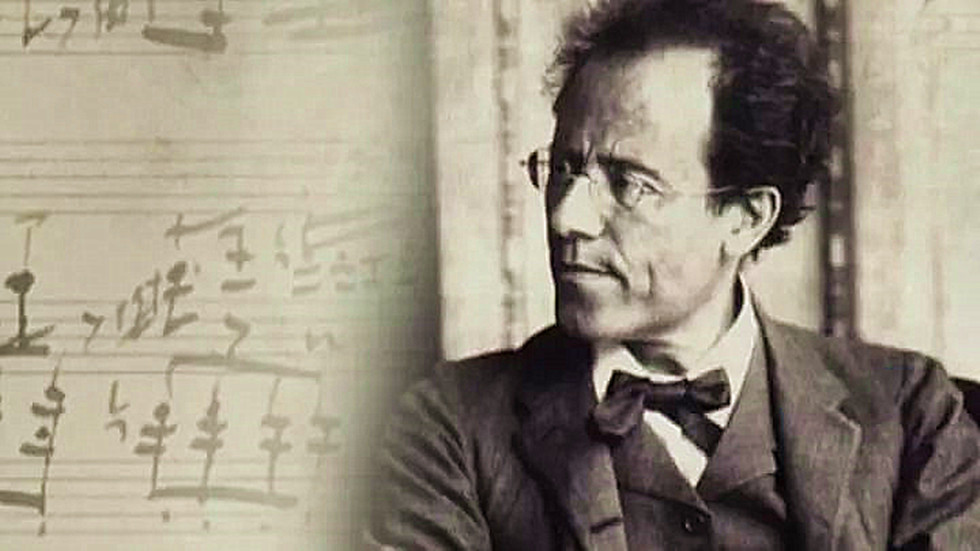 |
|
| |
古斯塔夫·马勒 (Gustav Mahler ) |
|
|
|
| |
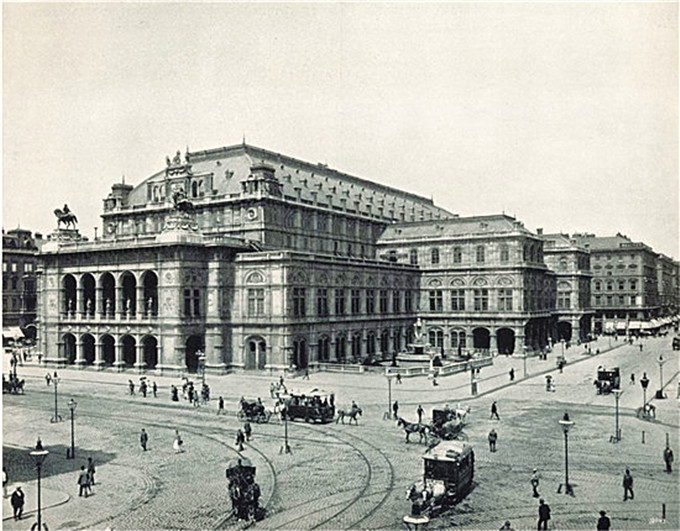 |
|
|
|
| |
维也纳剧院-马勒担任总监(1898)
在19世纪末20世纪初这个欧洲排犹势力肆虐的节点,犹太人这个身份成为马勒音乐生涯中的“束缚”。1897年,马勒迎来了人生中最辉煌的时刻,他成为极负盛名的维也纳国家歌剧院的总监,但为了保住这个极具声望的位置,马勒不得不抛弃自己犹太教徒的身份而改信天主教。 |
|
|
|
| |
Vienna theatre -
mahler as director (1898)
In the late 19th and early 20th centuries, a time when anti-semitism was
rampant in Europe, the jewish identity became the "tie" in mahler's
music career.In 1897, mahler's greatest moment came when he became
director of the prestigious Viennese opera house. But in order to keep
his prestigious position, mahler had to abandon his jewish identity and
convert to Catholicism. |
|
|
|
| |
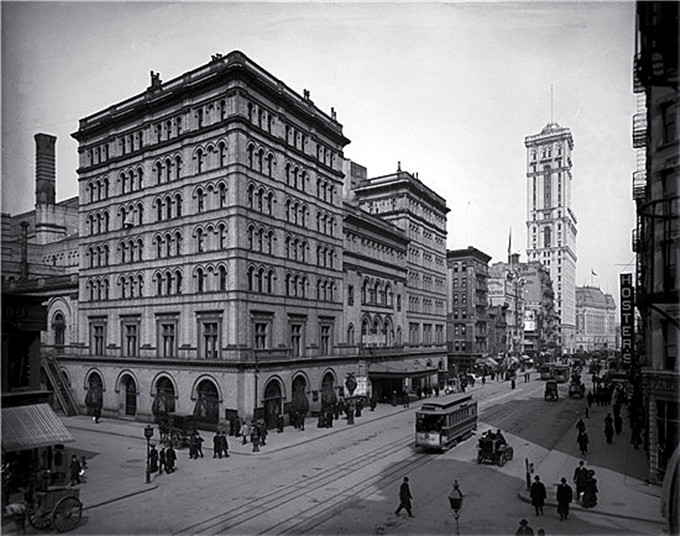 |
|
|
|
| |
纽约大都会歌剧院-马勒担任指挥家(1908 - 09)
身处欧洲政治文化的中心,为了音乐理想,马勒一直承受着反犹“强加给他的孤独和排挤”,直到1907年,当奥地利的皇帝要求一名唱功不佳的女歌手登台演绎时,马勒严词拒绝,他因此也失去皇室这唯一支持的力量。 |
|
|
|
| |
The
Metropolitan Opera, New York - conductor by mahler (1908-09)
At the center of European political culture, mahler suffered from
"loneliness and exclusion" imposed by anti-semitism for his musical
ideals until 1907, when the emperor of Austria asked a female singer
with poor singing ability to perform on stage. Mahler refused to perform
until he lost the only support force of the royal family. |
|
|
|
| |
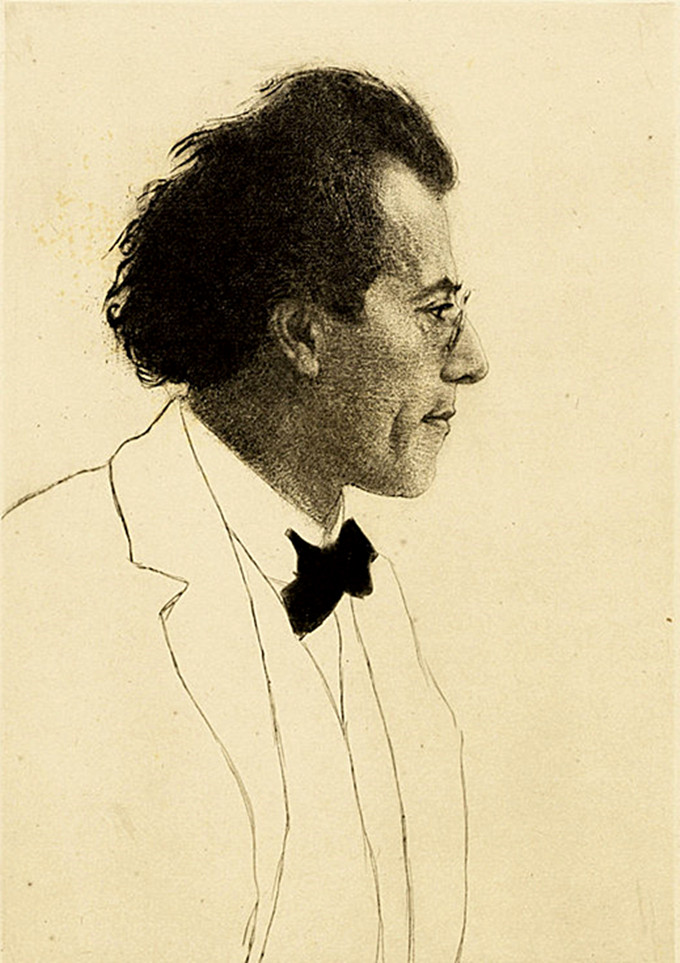 |
|
|
|
| |
马勒肖像画,by Emil Orlik,1902 |
|
|
|
| |
从纽约返回维也纳的船上,奥地利小说家斯蒂芬·茨威格目睹了马勒病重时的模样,在茨威格后来的《古斯塔夫·马勒的重返》一书中,他回忆道:“脸色苍白如临终之人,他的侧影映在天与海无尽的灰色间,显出无限的悲怆,却又因他的伟大而显得庄严,像音乐一般,缓缓朝着完美的结局行进”。
|
|
|
|
| |
Ottorino From New
York to return to Vienna, Austria novelist stefan zweig witnessed when
mahler was seriously ill, in zweig later return of gustav mahler, he
recalls: "pale as death, his silhouette reflected in endless gray
between the day and the sea, show infinite pathos, but for his great and
appear solemn, like music, slowly marching toward perfect ending". |
|
|
|
| |
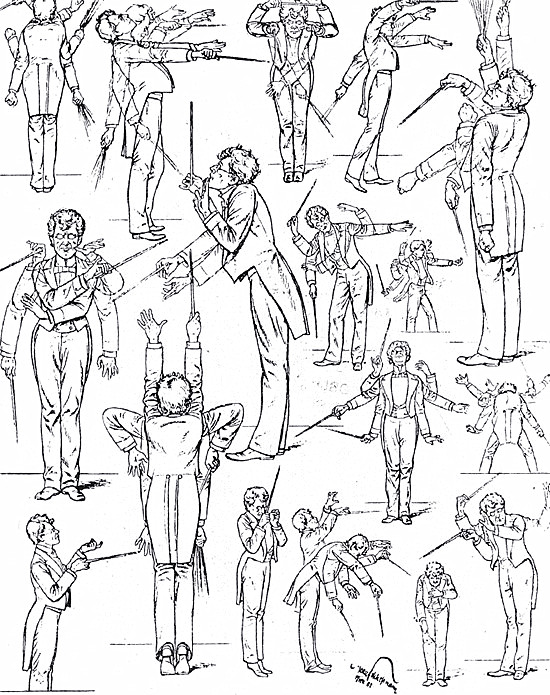 |
|
|
|
| |
马勒的指挥风格,来自讽刺幽默杂志《FliegendeBlätter》,1901
在马勒的维也纳时代,他指挥家的身份比作曲家的身份更为人熟知,毕竟他是现代音乐会演出模式的缔造者。也许是因为犹太人的身份,马勒的作品长期不被接受,但也让他信誓旦旦的说出了那句名言:「我的时代将要来临」。 |
|
|
|
| |
Mahler's
conducting style, from the satirical humor magazine FliegendeBlatter,
1901
In his time in Vienna, mahler was better known as a conductor than as a
composer, after all the architect of the modern concert format.Perhaps
because of his jewish identity, mahler's work was long frowned upon, but
it also led him to swear that "my time will come". |
|
|
|
| |
|
|
|
|
| |
Today in the
history of music
On May 18, 1911, at 11:05 p.m., during a storm, gustav mahler took his
last breath at the loew sanatorium in Vienna.He was 50 years old, alone,
and his wife was sent out of his room."I will never forget the hours he
spent dying and the great look on his face as death drew near.His
struggle for eternal values, his sublime extraction from trivialities,
his unwavering devotion to the truth, are examples of the holy life
"(Alma mahle)
On July 7, 1860, another famous music star was born in kalisht, Bohemia.
He was Gustav Mahler (1860-1911), the famous Austrian composer and
conductor.
Mahler showed his artistic prowess even as a child: at the age of six he
took part in a piano competition;By the age of eight, he was teaching
other children;At the age of 15, he left the liberal arts school to
study at the Vienna conservatory of music for three years.
He died in Vienna on May 18th, aged 51, after suffering a heart attack
during his fourth holiday in 1911.
From the age of 19, mahler began conducting and writing. He conducted
opera houses in Prague, leipzig, Budapest, Hamburg and Vienna.The royal
opera house of Vienna reached an unprecedented level during his tenure
and enjoyed a first-class reputation at the time.As a result, he
conducted and played with an extraordinary power that left an indelible
impression.
In 1907, mahler left the opera house to continue his directing
activities in the United States.But every year he goes back to Vienna,
where he feels most at home, for a holiday.Mahler's artistic career was
fraught with controversy.Mahler's work had its own way and its own
character. He was usually busy conducting orchestras and supervising
theatres, and it was during his holidays that he became a
composer.Mahler's works are limited to symphonies and songs, which are
closely related to each other.
Mahler wrote a total of 10 symphonies (the last one was not completed)
and three collections with orchestral accompaniment.All of his
symphonies converge into one unified whole -- a grand symphonic
philosophical epic, in which each symphony is a chapter of the great
work, with deep internal connections, and new symphonies often seem to
emerge directly from the previous one.
Mahler wrote dozens of songs for himself, a kind of unique musical
diary, which he rarely performed until shortly before the first world
war.His later work is a shocking document, which describes the
disillusionment of a romantic musician's humanist worldview, from the
morbid self-development to the endless pessimism, to the tragic irony,
mystery and weirdness, that is, the process from the lower world to the
heaven and from the heaven to the hell.
Mahler's works are philosophical and grand, requiring huge space. Some
of his symphonies are as long as one and a half hours. Sometimes the
language of the music is too complicated and the form of the music is
rather loose.At the same time, his work requires a fairly large band to
play, which may be one reason his work is less frequently
played.However, his symphonies try to develop the progressive tradition
of Viennese symphonies. The vivid images of his symphonies, the theme
materials derived from Viennese folk music, and the diverse and colorful
writing techniques of the orchestra are all the charm of his symphonies.
1. Daniel gaddy conducting mahler's "fifth symphony";2. Mahler piano
quartet in a minor.
|
|
|
|
| |
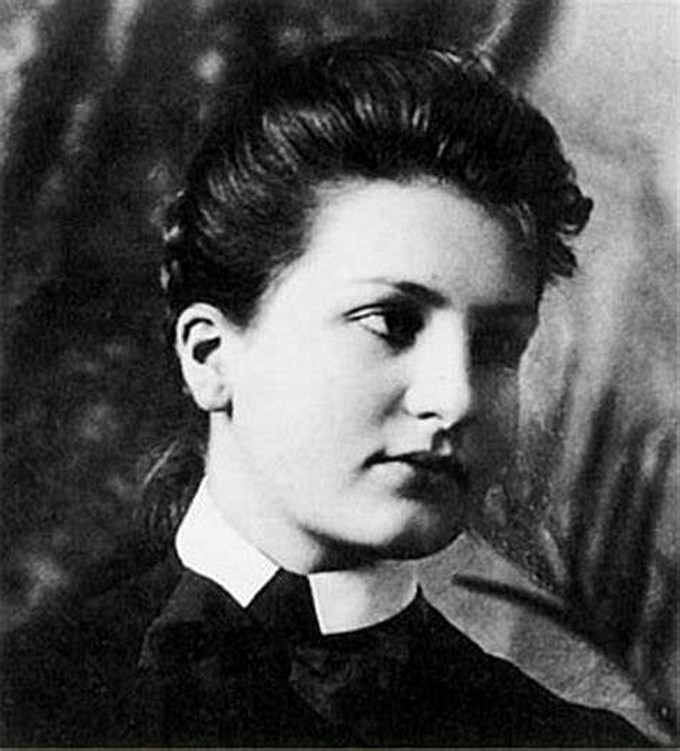 |
|
|
|
| |
马勒的妻子阿尔玛·马勒(Alma
Mahler ) |
|
|
|
| |
阿尔玛·马勒
古斯塔夫·马勒的妻子
Alma Mahler,原名Alma Maria Schindler,又名Alma Gropius和Alma
Werfel(生于1879年8月31日,奥地利维也纳-匈牙利-
1964年12月11日,纽约,美国),古斯塔夫·马勒的妻子,因与著名男人的关系而闻名。
作为画家埃米尔·辛德勒(Emil
Schindler)的女儿,阿尔玛在艺术和艺术家的包围中长大。她学习艺术,并与画家古斯塔夫·克里姆特(Gustav
Klimt)成为朋友,后者为她画了几幅肖像。然而,她的主要兴趣是音乐:她是一个有天赋的钢琴家,并与亚历山大·冯·泽姆林斯基一起学习作曲。
1902年,她嫁给了古斯塔夫·马勒,起初马勒劝她不要作曲;据说他在听了她的歌之后改变了主意。马勒在他的第六交响曲第一乐章中留下了她的音乐肖像,并将第八交响曲献给了她。阿尔玛1911年去世后,与奥斯卡·科科什卡有染,科科什卡曾多次为阿尔玛作画,最著名的作品是《暴风雨》(1914年;死Windsbraut)。1915年,她嫁给了建筑师沃尔特·格罗皮乌斯(Walter
Gropius);他们在第一次世界大战后离婚。1929年,她嫁给了作家弗朗茨·韦费尔。20世纪30年代末,维尔菲尔一家离开了纳粹德国,最终定居美国。
在她的一生中,马勒与许多著名的艺术家成为了朋友,包括作曲家阿诺德·勋伯格,作家格哈特·豪普特曼,以及歌手恩里科·卡鲁索。作曲家阿尔班·伯格将他的歌剧《沃采克》(1921)献给了她。
获得独家访问的内容,从我们的1768第一版与您的订阅。
现在订阅
阿尔玛·马勒出版了两本古斯塔夫·马勒的集子以及她的回忆录《桥就是爱》(1958)。她还发表了一些歌曲。 |
|
|
|
| |
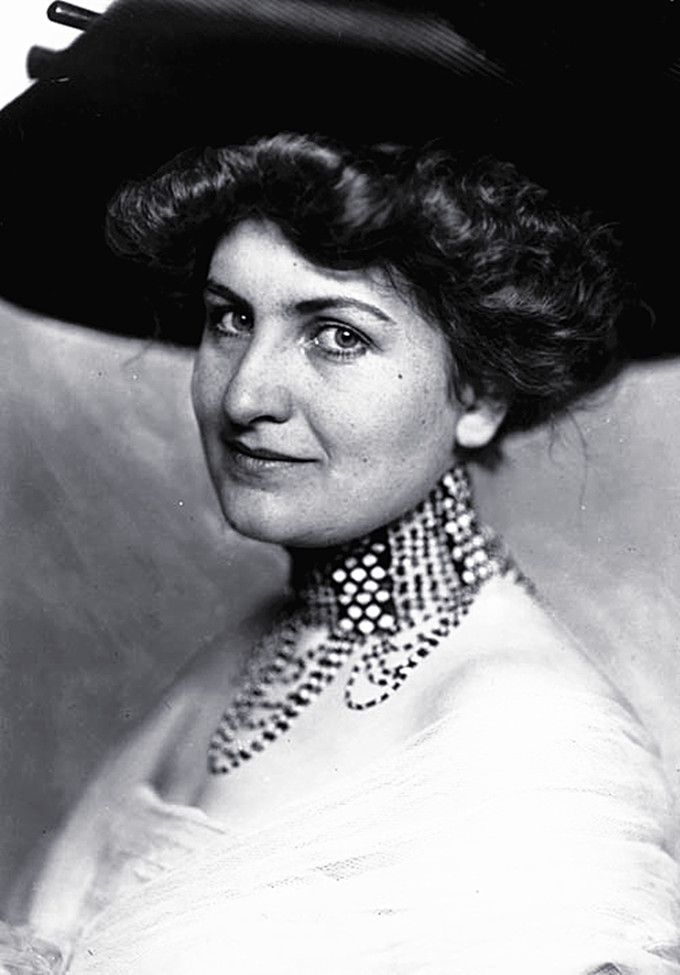 |
|
| |
马勒的妻子阿尔玛·马勒(Alma
Mahler
) |
|
|
|
| |
Alma Mahler
WIFE OF GUSTAV MAHLER
Alma Mahler, original name Alma Maria Schindler, also called
Alma Gropius and Alma Werfel, (born Aug. 31, 1879, Vienna,
Austria-Hungary—died Dec. 11, 1964, New York, N.Y., U.S.), wife
of Gustav Mahler, known for her relationships with celebrated
men.
The daughter of the painter Emil Schindler, Alma grew up
surrounded by art and artists. She studied art and became
friends with the painter Gustav Klimt, who made several
portraits of her. Her primary interest, however, was in music:
she was a gifted pianist and studied musical composition with
Alexander von Zemlinsky.
In 1902 she married Gustav Mahler, who at first discouraged her
from composing; he is said to have changed his mind after
hearing her songs. Mahler left a musical portrait of her in the
first movement of his Symphony No. 6, and he dedicated Symphony
No. 8 to her. After his death in 1911 Alma had an affair with
Oskar Kokoschka, who painted her many times, most notably in The
Tempest (1914; Die Windsbraut). In 1915 she married the
architect Walter Gropius; they were divorced after World War I.
She married the writer Franz Werfel in 1929. In the late 1930s
the Werfels left Nazi Germany, eventually settling in the United
States.
During her lifetime Alma Mahler became friends with numerous
celebrated artists, including the composer Arnold Schoenberg,
the writer Gerhart Hauptmann, and the singer Enrico Caruso. The
composer Alban Berg dedicated his opera Wozzeck (1921) to her.
Get exclusive access to content from our 1768 First Edition
with your subscription.
Subscribe today
Alma Mahler published two collections of Gustav Mahler’s
letters as well as her memoirs, And the Bridge Is Love (1958).
She also published a number of songs. |
|
|
|
| |
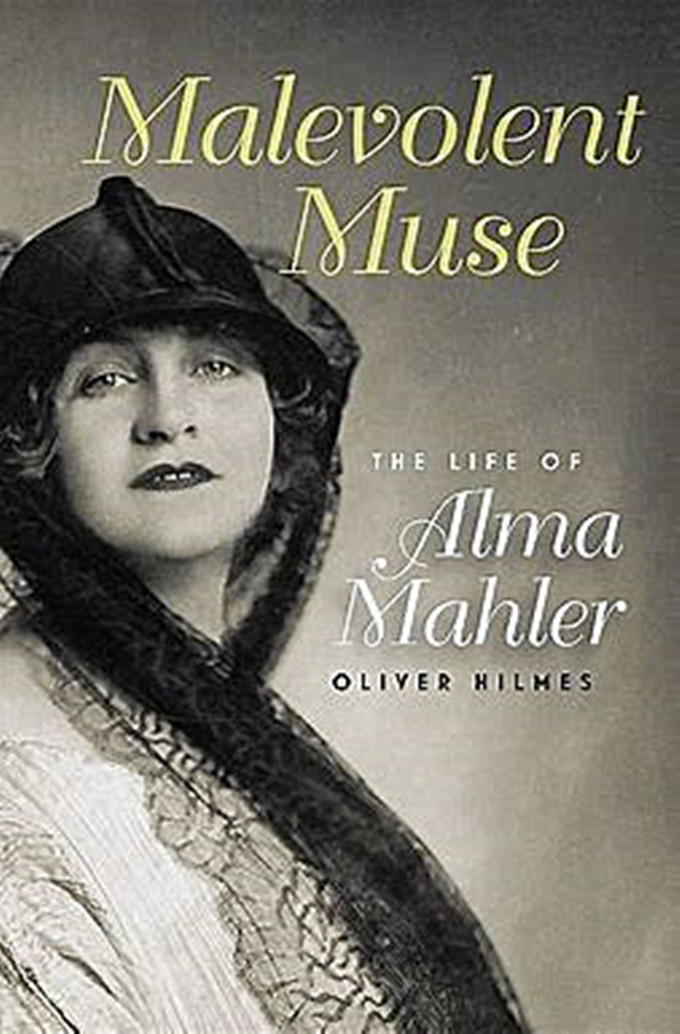 |
|
| |
|
《恶毒的缪斯:阿尔玛·马勒的一生》(Malevolent Muse: The Life
of Alma Mahler),奥利弗·希尔梅斯(Oliver
Hilmes)著(讲义)。 |
|
|
|
|
| |
"Malevolent Muse: The Life of Alma Mahler," by
Oliver Hilmes.(Handout) |
|
|
|
| |
德国哲学家和社会评论家阿多诺称她为“怪物”。作曲家理查德·施特劳斯在她身上看到了“放荡女性的自卑情结”。维也纳人吉娜·考斯(Gina
Kaus)对她不屑一顾,说她是“我认识的最糟糕的人”。玛丽埃塔·托伯格,奥地利作家弗里德里希·托伯格的妻子,将她描述为“一位贵妇人,同时也是一个污水坑。”
显然,阿尔玛·辛德勒·马勒·格罗皮乌斯·韦费尔在她的许多熟人中激起了强烈的反感。在漫长的一生中,她经历了奥地利哈布斯堡王朝的崩溃和两次世界大战,她的事迹也让人们对她充满了崇敬之情。她迷人、有特权、雄心勃勃、精于算计,是20世纪最杰出的女性之一,她的魅力光环感动了整整一代富有创造力的艺术家。
她是三个著名丈夫的妻子——作曲家古斯塔夫·马勒,建筑师和包豪斯的创始人沃尔特·格罗皮乌斯和作家弗朗茨·韦费尔——艺术家奥斯卡·科科什卡的情妇,和许多其他著名男人的情人。
这一大群自相矛盾的人是谁?德国作家奥利弗·希尔梅斯(Oliver
Hilmes)在他那本不偏不倚、引人入胜的传记《恶毒的缪斯:阿尔玛·马勒的一生》(Malevolent
Muse: the Life of Alma
Mahler)中探讨了这些悖论。这本书最初于2004年在德国出版,由唐纳德·阿瑟(Donald
Arthur)翻译成英文发行(东北大学出版社,360页,40美元)。
艾尔玛在1957年的自传中,在日记和信件中(1999年的英文版)都对难以忽视的真相进行了美化,但希尔梅斯没有这样做,而是选择保留他发现的历史证据。读者的工作就是判断阿尔玛到底有多恶毒或多仁慈。这不是一个特别讨人喜欢的肖像,但它听起来是真实的。 |
|
|
|
| |
German
philosopher and social critic Teodor Adorno called
her a "monster." Composer Richard Strauss saw in her
"the inferiority complexes of a dissolute female." A
Viennese acquaintance, Gina Kaus, dissed her as "the
worst human being I ever knew." Marietta Torberg,
the wife of Austrian writer Friedrich Torberg,
described her as "a grande dame and, at the same
time, a cesspool."
Clearly Alma Schindler Mahler Gropius Werfel
inspired passionate antipathies among her many
acquaintances. She also inspired passionate
admiration in the course of a long life that spanned
the collapse of Hapsburg Austria and two world wars.
Charming, privileged, ambitious and calculating, she
was one of the most remarkable women of the 20th
century, one whose magnetic aura touched an entire
generation of creative artists.
She was wife to three famous husbands – composer
Gustav Mahler, architect and Bauhaus founder Walter
Gropius and author Franz Werfel – mistress to artist
Oskar Kokoschka, and lover to many other prominent
men.
Who was this alluring mass of contradictions? German
author Oliver Hilmes probes the paradoxes in his
even-handed, compulsively readable biography,
"Malevolent Muse: The Life of Alma Mahler."
Originally published in Germany in 2004, the book
has been issued in an English translation by Donald
Arthur (Northeastern University Press, 360 pages,
$40).
Rather than glossing over inconvenient truths Alma
sanitized in both her 1957 autobiography and in her
diaries and letters (which appeared in an
English-language edition in 1999), Hilmes chooses to
leave the historical evidence just as he found it.
It's the reader's job to decide just how malevolent
or benevolent a muse Alma really was. It's not an
especially flattering portrait but it rings true. |
|
|
|
| |
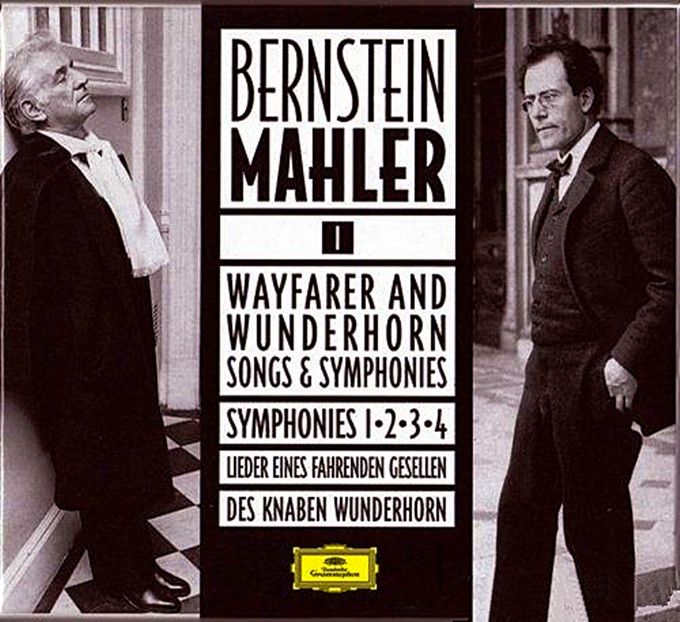 |
|
|
|
| |
伯恩斯坦:马勒,他的时代已经来临
伯恩斯坦颇有见地的1987年维也纳爱乐版马勒第五交响曲,在放大镜下重新审视。“这个版本最值得称道是伯恩斯坦自己,他激情澎湃,使音乐充满魔力抑扬顿错,并一无反故地引导乐曲直达终曲的辉煌!感谢异常清晰而均衡的录音,乐谱的微妙之出毫发必现....一如指挥家所愿。”━━摘自麦克尔·肯尼迪1988年8月的评论
。 |
|
|
|
| |
Albena
Bernstein: mahler, his time has come
Bernstein's insightful 1987 Viennese philharmonic
version of mahler's fifth symphony was re-examined
under a magnifying glass."The best credit for this
version goes to Bernstein himself. He made the music
magical, played it wrong, and led it, without fail,
to its grand finale.Thanks to the unusually clear
and balanced recording, the subtlety of the score is
never far away...As a conductor would wish."━━ a
comment by Michael Kennedy in August 1988. |
|
|
|
| |
|
|
|
|
| |
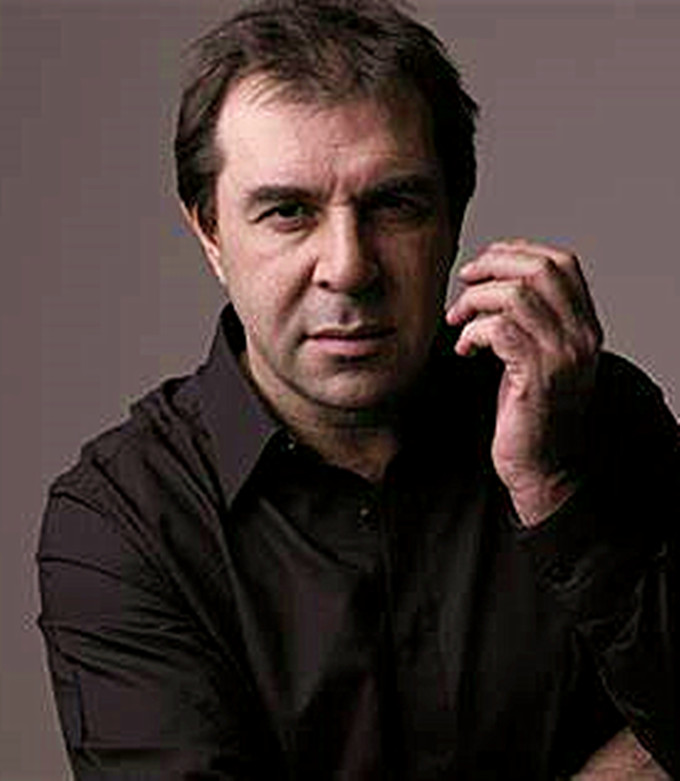 |
|
|
|
| |
丹尼尔·加蒂(Daniele Gatti) |
|
|
|
| |
丹尼尔·加蒂(Daniele
Gatti,1961-),意大利著名指挥家。指挥风格狂放热烈,擅长歌剧及浪漫派交响作品。曾担任罗马圣契西莉亚国立音乐院管弦乐团音乐指导(1992-1997),英国皇家爱乐乐团首席指挥(1996-2009)。2008年起接替前东德指挥巨擘马舒尔担任法国国家管弦乐团音乐指导。2014年年中,“百年老店”荷兰阿姆斯特丹皇家音乐厅管弦乐团宣布,加蒂将于2016年接替杨松斯出任该团首席指挥。
加蒂被认为是20世纪60年代一辈指挥中的佼佼者。他颇具梦幻与张力的演出风格经常能给音乐作品披上一层别样的色彩。在他的棒下,乐队经常能够迸发出巨大的活力。《时代》周刊曾评论到:“加蒂精耕细作的演出风格对听众的耳朵有特别的说服力。
加蒂于1961年11月6日出生于意大利米兰。曾在米兰威尔第音乐学院学习钢琴及小提琴,并获得作曲和指挥学位。1989年,27岁的加蒂在著名的斯卡拉大剧院指挥演出罗西尼的《慢藏海盗》(L’occasione
fa ll
ladro),开始了专业的指挥生涯,并辗转于罗马、芝加哥、柏林、纽约等地指挥歌剧演出。1990年,加蒂与美国国家交响乐团(National
Symphony
Orchestra,NSO)在纽约卡内基音乐厅合作演出。他还与伦敦交响乐团、巴伐利亚广播交响乐团、柏林爱乐乐团等世界著名乐团开展合作。1992年,加蒂出任罗马圣契西莉亚国立音乐院管弦乐团(Orchestra
Dell'Accademia Nazionale di Santa
Cecilia)音乐指导一职。1996年,他与纽约爱乐乐团首次合作指挥马勒第六号交响曲。
1994年,加蒂首次与英国皇家爱乐乐团(Royal Philharmonic Orch
estra)合作演出,他立即拿到了该团的首席指挥职位,并于1996年走马上任。他成功地将该团的演奏水准保持在了较高水平(不输于同城的两个“老大哥”伦敦交响乐团与伦敦爱乐乐团)。2007年4月,加蒂与其他七位英国乐团著名指挥(包括伦敦交响乐团音乐总监捷杰耶夫等)签署了《走向卓越:21世纪乐团宣言》,决定增加在英国本土的演出次数,包括给予英国的在校学生免票听音乐会的福利等。
[2] 与此同时,加蒂还担任英国皇家大剧院(Royal Opera
House)客席指挥。2005年,加蒂与著名指挥祖宾·梅塔和克里斯蒂安·蒂勒曼等同时受邀参加了维也纳国家歌剧院重开五十周年庆典演出。2008年,加蒂在著名的拜罗伊特音乐节(Bayreuth
Festival)上指挥演出了瓦格纳的《帕西法尔》。2009年,加蒂卸任皇家爱乐乐团首席指挥一职,并称为该团“桂冠指挥”。
另外,加蒂于2008年9月起担任法国国家管弦乐团音乐总监,2009年到2012年还兼任苏黎世歌剧院客席指挥。随着他在意大利歌剧以及浪漫派交响乐指挥上的造诣声誉日隆,2014年,举世闻名的荷兰皇家阿姆斯特丹音乐厅管弦乐团宣布,丹尼尔·加蒂将于2016年接替拉脱维亚籍指挥大师马里斯·杨松斯,出任该团首席指挥一职。 |
|
|
|
| |
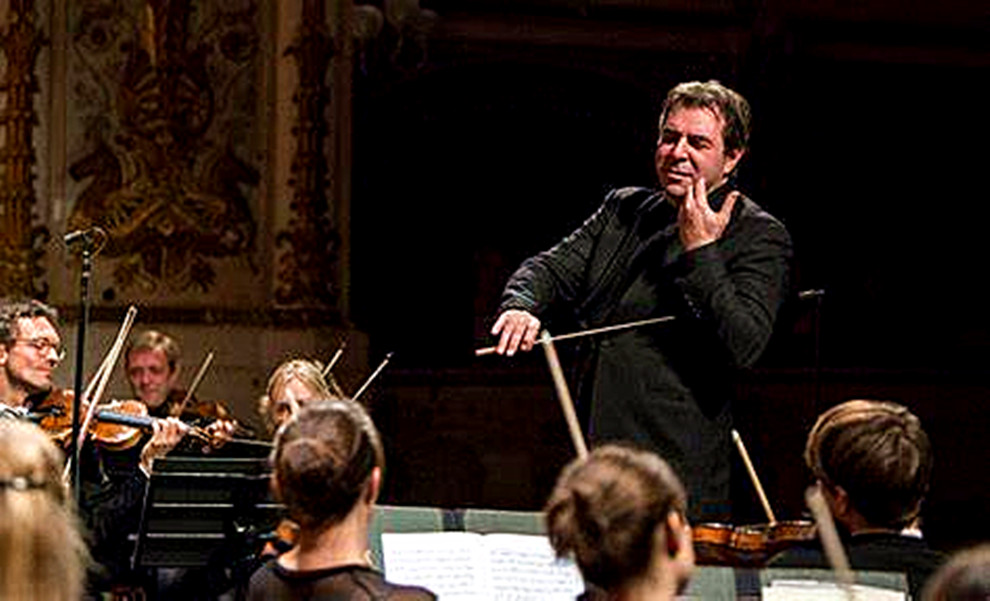 |
|
| |
丹尼尔·加蒂(Daniele Gatti)在指挥中 |
|
|
|
| |
Daniele
Gatti (1961 -) is an Italian conductor.Conductor style is wild
and enthusiastic, good at opera and romantic symphonic works.He
was music director of the orchestra of the national academy of
music in Rome (1992-1997) and principal conductor of the royal
philharmonic orchestra (1996-2009).He has been music director of
the French national orchestra since 2008, succeeding the former
east German conductor mathieu mashour.In mid-2014, the royal
Amsterdam concert hall orchestra announced that gatti would take
over from young as conductor in 2016.
Gatti was considered one of the best conductors
of the 1960s.His dreamlike and intense performance style can
often give his music a different color.Under his baton, the band
can often burst into great energy.Time magazine once commented:
"gatti's intensive performance style is particularly persuasive
to the ears of the audience.
Gatti was born in milan, Italy, on November 6,
1961.He studied piano and violin at the verdi conservatory of
music in milan and received a degree in composition and
conducting.In 1989, the 27-year-old GBS in the famous scala
command performance rossini pirates of the slow hidden occasione
fa (L 'll ladro), started the command of the professional
career, and in and places such as Rome, New York, Chicago,
Berlin command opera performances.In 1990, Mr. Gatti performed
with the National Symphony Orchestra (NSO) at Carnegie Hall in
New York.He has also collaborated with world-renowned orchestras
such as the London symphony orchestra, the Bavarian radio
symphony orchestra and the Berlin philharmonic.In 1992, gatti
took over as musical director of the Orchestra Dell 'accademia
Nazionale di Santa Cecilia in Rome.In 1996, he conducted
mahler's symphony no. 6 with the New York Philharmonic orchestra
for the first time.
In 1994, Mr. Gathy made his debut with the Royal
Philharmonic Orch
Estra), and he was immediately given the position
of chief conductor of the regiment, which he assumed in 1996.He
managed to keep it up to par with his two big brothers, the
London symphony orchestra and the London philharmonic.In April
2007, gatti and seven other famous conductors of British
orchestras (including the music director of the London symphony
orchestra, djeev djeev, etc.) signed the "towards excellence:
the 21st century orchestra declaration", which decided to
increase the number of performances in the UK, including giving
free tickets to British students to attend concerts.[2] at the
same time, gathy was guest conductor at the Royal Opera House.In
2005, gatti was invited to perform at the 50th anniversary of
the reopening of the Viennese opera along with the famous
conductors zubin mehta and Christian thiermann.In 2008, Mr.
Gathy conducted a performance of Wagner's "Parsifal" at the
prestigious Bayreuth Festival.Gatti stepped down as principal
conductor of the royal philharmonic in 2009 and became known as
the orchestra's "laurel conductor."
In addition, gatti was music director of the
national orchestra of France from September 2008 and guest
conductor of the Zurich opera house from 2009 to 2012.In 2014,
the world-renowned orchestra of the royal Amsterdam concert hall
announced that Daniel gatti would take over as chief conductor
of the orchestra from latvian maestro maris janssens in 2016. |
|
|
|
| |
|
|
|
|
| |
马勒a小调钢琴四重奏 / |
|
|
|
| |
Mahler- Piano Quartet in A Minor |
|
|
|
| |
马勒a小调钢琴四重奏为其学生时代的作品,单乐章。该作品曾在电影《禁闭岛》中作为配乐多次出现。视频中的第二乐章为Alfred
Schnittke所作。
原始简介:
伊农·巴纳坦,钢琴
博里斯·布罗夫辛,维奥
阿米海·格罗斯,阿尔特维奥
鲍里斯·安德里亚诺夫大提琴
马勒:在KL.T。 Arar |
|
|
|
| |
Inon
Barnatan, piano
Boris Brovtsyn, viool
Amihai Grosz, altviool
Boris Andrianov, cello
Mahler: Pianokwartet in a kl.t. ar |
|
|
|
| |
|
|
|
|
| |
未得原作者编者授权严禁转载www.mt77.com任何内容 |
|
|
|
|
|
|
|
|
|
|
|
|
|
|


